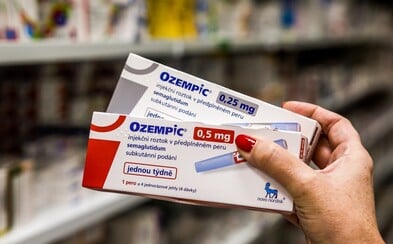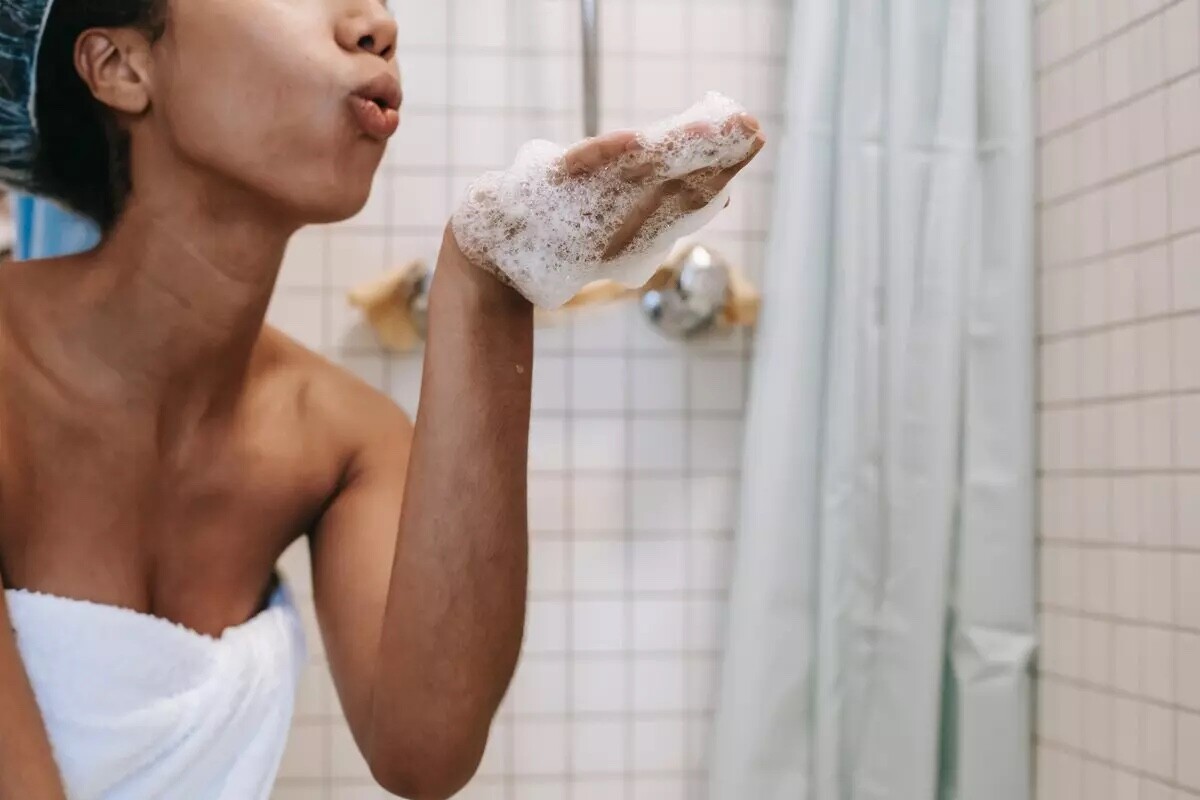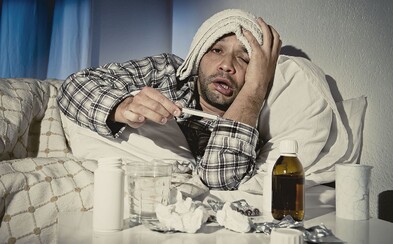 Ozempic can cause vision loss. A new study has shown a link between the drug and eye problems
Ozempic can cause vision loss. A new study has shown a link between the drug and eye problems
Ozempic can cause vision loss. A new study has shown a link between the drug and eye problems
Ozempic can cause vision loss. A new study has shown a link between the drug and eye problems
Intimate Hygiene: Women Invest In Scented Products, Then End Up At The Doctor's Office With Irritated Mucous Membranes
Forget about douches, perfumes and essential oils.
If problems persis, please contact administrator.

Neither soap, nor scented shower gels with flower extracts, nor special rinses or steaming. Forget everything you were told about "intimate hygiene". We asked doctors who deal with the health of the skin and genitals, and they confirmed that, in fact, you need only very little: water and a healthy lifestyle.
Forget about scented gels and wet wipes
Taking care of the female genitalia is actually easier than the ads make it seem. Urogynecologist Oľga Káčeriková says that it is best to use clean water. Avoid scented cleaning gels and soaps. According to the expert, a healthy woman does not need anything extra. Regular washing only concerns the vulva (i.e. the external genitalia), not the inside of the vagina. Keep your intimate areas dry: change into dry clothes after swimming and dry yourself gently after showering. But never wipe or rinse from the inside, it can hurt you.

Vaginal douches have, based on scientific studies, several negative effects. You are at risk of problems during pregnancy, or in risk of contracting sexually transmitted diseases. This was confirmed especially in the case of infection with the HPV virus. The researchers who developed this study estimate that more than 80 percent of men and women will contract some form of HPV during their lifetime.
There are more than a hundred types, and most of them remain unnoticed. However, the WHO reminds that the virus should not be underestimated, as it can be responsible for cancer, most notably cervical cancer.
What is more, your vagina doesn't really need douching. "The vagina is never, nor has it ever been, sterile. It is natural home for various types of microorganisms. If one type proliferates, it causes an infection," explains Dr. Káčeriková.
Scented products can be tempting, but dermatologists and gyneacologists don't recommend using them. This applies not only to shower gels or deodorants, but also to perfumed menstrual supplies (for example, scented pads). The vagina has a self-cleansing ability, which means that it can balance the bacteria by itself. You don't have to "help" her by using special gels, suppositories or probiotic tampons.
But what if I smell?
The vagina has its own characteristic smell. It can change during the cycle or due to external factors (for example, after sex). Experts agree that this is normal and healthy. If it doesn't cause complications in your life, you have no medical reason to cover your smell with rose oil or other fragrances.

However, a strong odor, for example very sour or hitherto unknown, that persists for several days can be cause for concern. In this case, it could be a health problem. Several infections are accompanied by an unpleasant odour or the change in the colour and consistency of the discharge.
Normal discharge is colourless or white and has no distinct odor. During the cycle, it changes from more watery to thicker, sticky. If you do not know what is happening, you feel pain, burning, discomfort and you notice changes that are our of ordinary, visit your doctor.
Dr. Káčeriková adds that if the skin is irritated by fragrances or excessive hygiene, the use of other chemical substances will not help. Do not buy new special cleaning gels at the first itch. The routine should be simplified: "The skin should be allowed to rest. Wash with clean water once a day, wear cotton underwear, not too many layers, and avoid tight clothing that causes further irritation.” If the problem does not go away within a day or two, seek medical help.
1. Wash yourself with running water once a day (do not rinse from the inside). If you want, you can use a gentle unscented cleansing gel suitable for intimate areas.
2. After using the toilet, wipe from front to back. Avoid perfumed toilet paper and wet wipes.
3. Cotton underwear is ideal for the skin. Save lace or satin, as well as overly tight clothes, for special occasions.
4. When shaving, use shaving foam and move the razor in the direction of hair growth. Moisturise the skin with a gentle moisturising cream.
5. A balanced diet and regular exercise also affect the health of the genitals, as well as the smell and the function of the mucous membrane.
6. Don't forget to urinate after sex.
Excessive cleanliness will bring you health problems
Dermatologist Mária Pirselová says that women often confess about problems with the skin around the genitals when they come to the clinic with different problem. Maybe it's fear or shame, but few patients book an appointment for an examination with an intimate problem.
"We're dealing with something completely different, and they just mention these symptoms casually," she describes. At the same time, the problems which women decide to admit affect their quality of life. "They feel itchy or burning, have some swelling or redness."
The doctor says that the most common cases are allergic contact dermatitis or irritant dermatitis. These skin reactions often occur when the skin is "stressed" by a complex cleaning routine, new substances, perfume or other irritating ingredients that are commonly found in cosmetics. "This is a local irritation caused by, for example, aromatic essences, propolis or latex," explained the dermatologist.
That's when it's time to ditch all the complicated products you use to wash your private parts and replace them with water or a simple moisturizer.
Both doctors agreed that women should not use soaps and napkins intended for children for intimate hygiene. "There is a relatively acidic pH in the vagina. Children's soaps are alkaline and therefore disrupt the natural environment in the vagina," Pirselová told us. These products can cause various inflammations. For example, bacterial vaginosis or yeast infection occurs even with excessive washing of the vagina. Anything that upsets your natural pH allows bacteria to multiply.
Káčeriková generally does not recommend using even classic wet wipes. "They contain a lot of ingredients. If a woman feels the need to use more than just toilet paper, a better option is a bidet, rinsing with clean water. Outwardly and softly."
- Look for an unscented product.
- Look at the ingredients, lactic acid is suitable.
- Pirselová recommends dermatologically tested products backed by a scientific study.
When it comes to things that don't belong in the vagina, in addition to soaps and perfumes, this list also includes saliva. According to experts, this is the worst lubricant. "We have a large number of bacteria in our mouths that can disturb the natural flora of the vagina. Similarly, saliva after smoking, drinking wine or beer can lead to a disturbance of pH, damage the natural microflora, lead to yeast infection or irritation," doctor Mária Kubalová told us.
If you are struggling with a dry vagina, water dries it out even more. Baby oils, body lotions or butter are also unsuitable. On the contrary, coconut or almond oil, or an appropriately chosen lubricant, is worth a try. It is worth finding out the cause of the dryness. "One of the reasons for vaginal dryness can be, for example, insufficient foreplay, a feeling of discomfort, or the fear of communicating what I like and what I don't like," says Kubalová.
Lubrication can change with aging, during menopause, after childbirth or during breastfeeding. It is also affected by various diseases, such as diabetes, the use of certain medications, including hormonal contraception, or cancer treatment.
If problems persis, please contact administrator.















